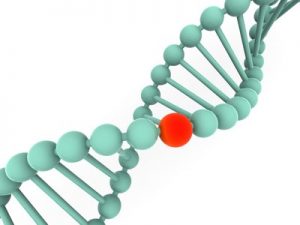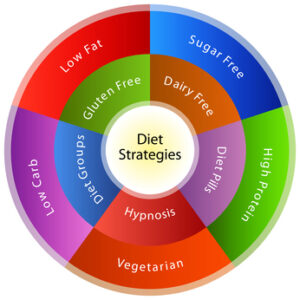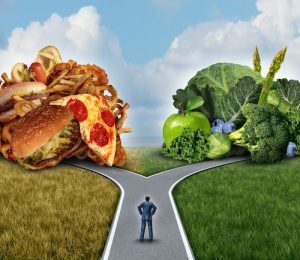Is The Mediterranean Diet Overrated?
Author: Dr. Stephen Chaney
 You may have noticed that certain celebrities are singled out for fame and acclaim, while others of equal talent and accomplishment are virtually ignored.
You may have noticed that certain celebrities are singled out for fame and acclaim, while others of equal talent and accomplishment are virtually ignored.
The same thing occurs in the scientific realm. At present, the Mediterranean diet is the darling of the diet world. Study after study is designed to test the benefits of the Mediterranean diet while other excellent diets are ignored. I will discuss this phenomenon and ask whether the Mediterranean diet is overrated at the end of this article. But let’s start at the beginning.
Multiple studies have shown that the Mediterranean diet is associated with lower risk of heart disease, diabetes, and high blood pressure. Some studies suggest it is associated with lower risk of kidney disease and Alzheimer’s disease.
Studies also suggest that the Mediterranean diet is associated with an increase in lifespan (how long you live) and healthspan (how long you enjoy good health). In other words, these studies suggest that following a Mediterranean diet adds years to your life and life to your years.
Most of these studies have been done with men. However, there are enough studies with women to be confident that the beneficial effects of the Mediterranean diet on disease risk and lifespan apply to women as well as to men.
But what about pregnancy? Does the Mediterranean diet support a healthy pregnancy? Here the data are less clear. Three studies have been published showing that pregnant women who follow the Mediterranean diet are less likely to experience gestational diabetes (diabetes during pregnancy).
But what about other adverse pregnancy outcomes that can affect the health of both the mother and her baby such as:
- Gestational hypertension (high blood pressure during pregnancy).
- Preeclampsia (high blood pressure and protein in the urine that occurs late in pregnancy. It may be associated with liver and/or kidney damage).
- Eclampsia (a severe form of preeclampsia where the mother also has seizures).
- Preterm birth (birth prior to 37 weeks).
- Low birth weight infant.
This study (N Makarem et al, JAMA Network Open. 5(12): e2248165, 2022) was designed to look at the effect of the Mediterranean diet on all seven of these adverse pregnancy outcomes.
How Was This Study Done?
 The data for this analysis came from a large clinical trial called the Nulliparous Pregnancy (first time pregnancy) Outcomes Study. The study enrolled 7798 women in their first trimester of pregnancy from 8 medical centers across the country. The women were racially, ethnically, and geographically diverse.
The data for this analysis came from a large clinical trial called the Nulliparous Pregnancy (first time pregnancy) Outcomes Study. The study enrolled 7798 women in their first trimester of pregnancy from 8 medical centers across the country. The women were racially, ethnically, and geographically diverse.
Diet around the time of conception was assessed with a food frequency questionnaire administered at the mother’s first visit to the clinic (usually around 6-13 weeks after conception). The participants were asked to indicate their usual intake of 120 foods and beverages during the past 3 months. In other words, the participants were asked to indicate their diet prior to conception through early pregnancy.
Adherence to the Mediterranean diet was assessed using something called the aMed or Alternative Mediterranean Diet Score (a version of the Mediterranean diet that considers US food preferences). Each participant was assigned one point for:
- Above average intake of vegetables, fruits, nuts, whole grains, legumes, fish, and the ratio of monounsaturated fat to saturated fat.
- Below average intake of red meat and processed meats.
Alcohol intake was a bit more complicated:
- Participants were given 1 point for one 12-ounce can of beer, 5 ounces of wine, or 1.5 ounces of liquor and 0 points for consumption above or below that amount.
The points for all these dietary components were added up to give an aMed score of 0-9, with 9 representing the best adherence to the Americanized version of the Mediterranean diet.
Does The Mediterranean Diet Improve Pregnancy Outcomes?
 The authors started out by dividing the pregnant moms into thirds according to adherence to an Americanized Mediterranean diet based their aMed score. When they compared those in the top third (aMed scores of 6-9) with those in the lowest third (aMed scores of 0-3) the risk of developing:
The authors started out by dividing the pregnant moms into thirds according to adherence to an Americanized Mediterranean diet based their aMed score. When they compared those in the top third (aMed scores of 6-9) with those in the lowest third (aMed scores of 0-3) the risk of developing:
- Any adverse pregnancy outcome was reduced by 21%.
- Preeclampsia or eclampsia were reduced by 28%.
- Gestational diabetes was reduced by 37%.
- Other adverse pregnancy outcomes were not statistically different.
Next, they asked whether stricter adherence to the Mediterranean diet would be even more beneficial. To do this  they divided the pregnant moms into fifths. When they compared those in the top fifth (aMed scores of 7-9) with those in the lowest fifth (aMed scores of 0-2) the risk of developing:
they divided the pregnant moms into fifths. When they compared those in the top fifth (aMed scores of 7-9) with those in the lowest fifth (aMed scores of 0-2) the risk of developing:
- Any adverse pregnancy outcome was still reduced by 20%, but…
-
- Preeclampsia and eclampsia were reduced by 35%.
-
- Gestational diabetes was reduced by 54%.
-
- Other adverse pregnancy outcomes were not statistically different.
When they broke the results down into participant subgroups:
- The effect of the Mediterranean diet on any adverse pregnancy outcomes was not affected by prepregnancy BMI (a measure of obesity), race, or ethnicity.
- However, it was significantly affected by age. Any adverse pregnancy outcome was reduced by:
-
- 48% in women over 35.
-
- 15% in women younger than 35.
The authors concluded, “We demonstrate that a Mediterranean diet pattern is associated with lower risk of developing any APO [adverse pregnancy outcome] and multiple individual APOs in US women…Our findings add to the growing body of evidence that the Mediterranean diet pattern may play an important role in preserving the health of women across the lifespan, including during pregnancy.”
Is The Mediterranean Diet Overrated?
 At the beginning of this article, I posed the question, “Is the Mediterranean diet overrated?” When the authors broke the results down by food group, it suggested the answer may be, “Yes”.
At the beginning of this article, I posed the question, “Is the Mediterranean diet overrated?” When the authors broke the results down by food group, it suggested the answer may be, “Yes”.
The reduction in any adverse pregnancy outcome was associated with:
- Above average consumption of vegetables, fruits, legumes, and fish.
The reduction in preeclampsia and eclampsia was associated with:
- Above average consumption of vegetables, fruits, and fish.
The reduction in gestational diabetes was associated with:
- Above average consumption of vegetables, and…
- Below average consumption of red meat and processed meats.
If you are saying to yourself, “Wait a minute. Doesn’t this pattern of food consumption describe almost any whole food, primarily plant-based diet”, you would be correct. In theory, this pattern of food consumption is also consistent with the DASH diet, Mind diet, Scandinavian diet, flexitarian diet, pesco-vegetarian diet, and semi vegetarian diet, just to name a few.
In my opinion there is nothing about this study that restricts beneficial pregnancy outcomes to the Mediterranean diet. However, I do have a few caveats about that statement.
- A good prenatal supplement is a good idea to make sure you are getting the vitamins and minerals required for a successful pregnancy. However, as I have described in a previous article finding a good prenatal supplement may not be as easy as it should be.
- Choline is important for a healthy pregnancy, and it is missing in many prenatal supplements. While choline is found in many plant foods, the best sources of choline are fish, poultry, eggs, and dairy. You want to be sure to include some of these in your diet and/or look for a prenatal supplement containing at least 200 mg of choline.
- The long chain omega-3s DHA and EPA are important for a healthy pregnancy and are also missing or present in inadequate amounts in many prenatal supplements.
- The best dietary sources of DHA and EPA are cold water fish like salmon, tuna, sardines, and herring. That means:
-
- If you are following the DASH diet or something similar, you will want to substitute fish for red meat.
-
- A pesco-vegetarian diet is probably a better choice for you than a semi-vegetarian because it focuses on fish as the main protein source in place of poultry and red meat.
-
- If you are not a big fish lover, you should consider an omega-3 supplement supplying at least 250 mg of long chain omega-3s with most of it as DHA.
What Does This Study Mean For You?
 Let me close by putting a few things into perspective.
Let me close by putting a few things into perspective.
1) When I said that the Mediterranean diet may be overrated, I did not mean it wasn’t an excellent diet. I simply mean it is probably not any better than other whole food, primarily plant-based diets (with the caveats I listed above).
2) The pregnancy benefits of the Mediterranean diet (and other healthy diets) are related to the overall health of the mother. A good prenatal supplement is still important to assure adequate amounts of all the nutrients essential for a healthy pregnancy.
- For example, the authors pointed out that most women do not change their dietary habits when they become pregnant, and that their pregnancy is more likely to be successful if they are in good health at the time of conception.
3) Most diets of women of childbearing age do not provide adequate amounts of choline and omega-3s, so it is important to choose a prenatal supplement program that provides adequate amounts of choline and omega-3s.
4) Adequate calories and protein are also important for a healthy pregnancy.
- Pregnancy is not the time to lose weight, even if you are overweight.
- A vegan diet may not provide enough protein unless it has been designed by a dietitian.
- You should discuss your current diet with your health care provider, and they may refer you to a dietitian if necessary.
The Bottom Line
The Mediterranean Diet is currently the darling of the nutrition world. Yes, numerous studies have shown that people consuming the Mediterranean diet are healthier and live longer. But we find ourselves in a situation where study after study is being designed to look for other benefits of the Mediterranean diet while equally healthy diets are being ignored.
The study discussed in this article is a perfect example. It was designed to determine whether adherence to the Mediterranean diet prior to and during pregnancy reduced the risk of experiencing adverse outcomes during pregnancy – outcomes that could affect the health of the mother and her baby.
The answer to that question was, “Yes”. Adherence to the Mediterranean diet reduced the risk of:
- Any adverse outcome during pregnancy by 20%.
- Preeclampsia and eclampsia by 35%.
- Gestational diabetes by 54%.
And the risk reduction was even greater for women over 35.
However, when the investigators looked at the foods responsible for the reduction in adverse pregnancy outcomes, it appears likely that any whole food, primarily plant-based diet would provide the same results.
In short, this study showed that adherence to the Mediterranean diet improves pregnancy outcomes. The authors chose to focus on the Mediterranean diet because of its popularity. But their data show it is likely that other whole food, primarily plant-based diets would be equally beneficial.
For more information on this study and what it means for you, read the article above.
These statements have not been evaluated by the Food and Drug Administration. This information is not intended to diagnose, treat, cure, or prevent any disease.
___________________________________________________________________________
My posts and “Health Tips From the Professor” articles carefully avoid claims about any brand of supplement or manufacturer of supplements. However, I am often asked by representatives of supplement companies if they can share them with their customers.
My answer is, “Yes, as long as you share only the article without any additions or alterations. In particular, you should avoid adding any mention of your company or your company’s products. If you were to do that, you could be making what the FTC and FDA consider a “misleading health claim” that could result in legal action against you and the company you represent.
For more detail about FTC regulations for health claims, see this link.
https://www.ftc.gov/business-guidance/resources/health-products-compliance-guidance






















